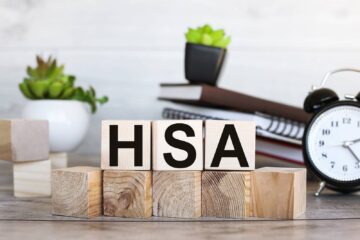Over the course of time, I have encountered a large number of people of all income levels living paycheck to paycheck. I’ve talked with individuals living lavish lifestyles, being “house poor,” and scraping by every couple of weeks to fund an overextended life. I’ve also talked to people on the lower income scale who just can’t seem to ever get ahead, working tirelessly just to pay for everyday expenses, including groceries, utilities and so forth. Then, there are the people in the middle, seemingly making ends meet, perhaps a little money set aside for a rainy day, but is it enough? Emergency funds are important for everyone, regardless of income level.
What is an emergency fund?
An emergency fund is money that you set aside for unexpected expenses. These funds should be easily accessible in the event of an emergency. Your retirement account is not an emergency fund. Pulling money from a retirement account is detrimental to saving for your future. Pulling money from retirement accounts can incur fees for early withdrawal in addition to income taxes incurred on that money. 401k loans are not emergency funds either. When you take a loan from a retirement account, you are taking funds out that could otherwise be earning you money for your future retirement. The key here is that an emergency fund is cash that is easily accessible in the event of an emergency. It is not a paycheck advance, expenses piled onto a credit card, a home equity line of credit and so forth. An emergency fund is money that you save that can be used if ‘you know what’ hits the fan.
Why is it important to have an emergency fund?
An emergency fund provides a financial buffer to ensure you can still live (even with the bare essentials) during a time of hardship. For example, we’ve all been living through a global pandemic. According to Forbes, during the COVID-19 pandemic, nearly 75% of Americans depleted at least half of their savings (see the chart below). Sure, this time we’re living through is considered a “100-year pandemic,” but it doesn’t take a pandemic to drain your savings or even bankrupt you. Having an emergency fund helps to ensure that if you face a rocky road, you’ll more likely be able to deal with all of the potholes.

Today, according to a Bankrate survey, more than 50% of Americans could not cover 3 months worth of expenses with their emergency fund.
Bankrate, July 2021
Some specific reasons why you should have an emergency fund include:
- A loss of your job/income. A job loss can happen involuntarily (you were laid off or fired) or voluntarily (e.g. you leave your job and want to pursue something different). Additionally, income loss can happen as a result of an accident or illness as well. It can also happen because one of you decides to stay home with a child. Having extra funds helps to replace your income temporarily while you go through a loss of income.
- An encounter with major medical expenses. The cost of health care in the United States is astronomical. That is a fact. While health insurance can cover a significant portion of health care expenses, the cost for premiums, copays, the expenses leading up to meeting your deductible, the expenses after your deductible (coinsurance) until you meet your out-of-pocket maximum for your plan, can be crippling to your finances. Couple this with an income loss, and this can bankrupt you. Having extra funds (in savings or in a Health Savings Account) can support you during a time of need.
- Car repair issues. Cars are costly. Between the cost of the car itself, the insurance, the gas, the oil changes, cars are a big part of the budget for many people. Now, when your car blows a transmission, what do you do? Charge it to a credit card? That $2500 transmission repair can quickly become $4000+ after interest piles on.
- Major repairs to your home. Home ownership is also costly. Whether you live in a newer home or an older home, ‘things’ happen. One thing that you can do is take things into your own hands with DIY. I believe if you put your mind to something, you can do it. If something is beyond your ability, you’ll need to hire a professional. That can be expensive. Another reason why you need an emergency fund.
How much money should I have in an emergency fund?
An emergency fund should be calculated based on your monthly expenses, not your income. This will require you to total up your monthly expenses, including mortgage/rent, utilities, groceries, car insurance, gas/maintenance and so forth. One thing to consider as you think about the amount of an emergency fund is how willing you’d be to make sacrifices if things got tough. Would you eat out less? Would you cancel subscriptions? That daily coffee? Cable? If so, you might calculate your emergency fund with your base expenses in mind. If not, then you’ll want to plan for more, including those things that you’re not willing to sacrifice.
If you are starting an emergency fund from nothing, I recommend that you first build up to 3 months worth of expenses. Then, work to get to 6 months worth of expenses. Expenses don’t need to take into account things like retirement savings. If you’re facing an emergency, chances are, one of the first things you’ll stop doing is saving.
Let’s say, you have $5,000 of base monthly expenses, including your living expenses, transportation, food, and daycare. If you’re starting with 3 months of an emergency fund, you’ll want $15k saved. For 6 months, $30k.
What if I currently have credit card and other debt? Should I still have an emergency fund
If you have credit card debt, the answer here is…it depends. If your credit card debt is sitting on 0% interest for 2 years, etc, it would make sense for you to build up your emergency fund during that time vs. paying that off right away, provided that you know what the deadlines are for paying that credit card balance off before you incur interest/fees. If you have credit card debt that is incurring larger interest expenses, you would want to pay that down/off before you build up an emergency fund. If you face income loss, for instance, those credit card bills are going to continue coming.
An example of where you want an emergency fund while you still have debt is also with student loans. Many individuals have student loans. This is debt that is NEVER forgiven, even in a bankruptcy. If you have student loans, you’d want to build up an emergency fund in order to ensure that you can continue servicing your student loan for some time in the event of a job loss or medical issue.
How do I build up an emergency fund?
One big way that you can more quickly build up your emergency fund is to temporarily cut your expenses. This does two things for you. One, it helps you free up money quickly to push toward your emergency fund. And two, it prepares you to sacrifice in the event of an actual emergency situation. When you test your ability to cut down to the bare minimum, you are exercising your frugality muscle. It is important for you to understand what you’d cut first in the event of an emergency situation. Do you know the order of things you’d cut out of your budget? If not, you should have that planned out.
Where do I keep my emergency fund?
First, figure out what kind of mattress you have. Is it easy to open? I actually once had a relative who used to hide money in the hems of the curtains. Kidding aside, there are a range of options for an emergency fund. You can choose to keep all or some of it in a high-yield (what does that even mean these days?) savings account. Bankrate does a great job of continually updating a list of banks nationally who offer the highest interest rates. Also, I am a big fan of local credit unions. Often your local credit union also offers rates that are better than the national bank chains.
One of the questions I often hear is, “do I need to keep my emergency fund in cash?” My answer to that is, maybe not. If you have a 6-month emergency fund, there are circumstance where you might keep 3 months of it in a high-yield savings account, and the other 3 months in an investment account, perhaps invested in a low-cost index fund. If you face an emergency, you can first tap into the cash. Then, if needed beyond 3 months, you could start selling the investment(s). With this approach, you do risk that the stock market could take a big hit and perhaps wipe out some of your investments in the short term. Beyond your emergency fund, you should see the market in a longer term view where investments grow with time.
In closing
An emergency fund is a critical component to your personal finances and your financial independence. I have seen so many people suffer financially only because they didn’t have emergency funds built. It can mean the difference between thriving and going bankrupt. For some, money burns a hole in your pocket. If you have money, you spend it. Building an emergency fund will challenge you to understand your current financial situation. It will challenge you to know what you need, and fund those needs with your own money vs. loans from family, creditors and others.
Good luck!


